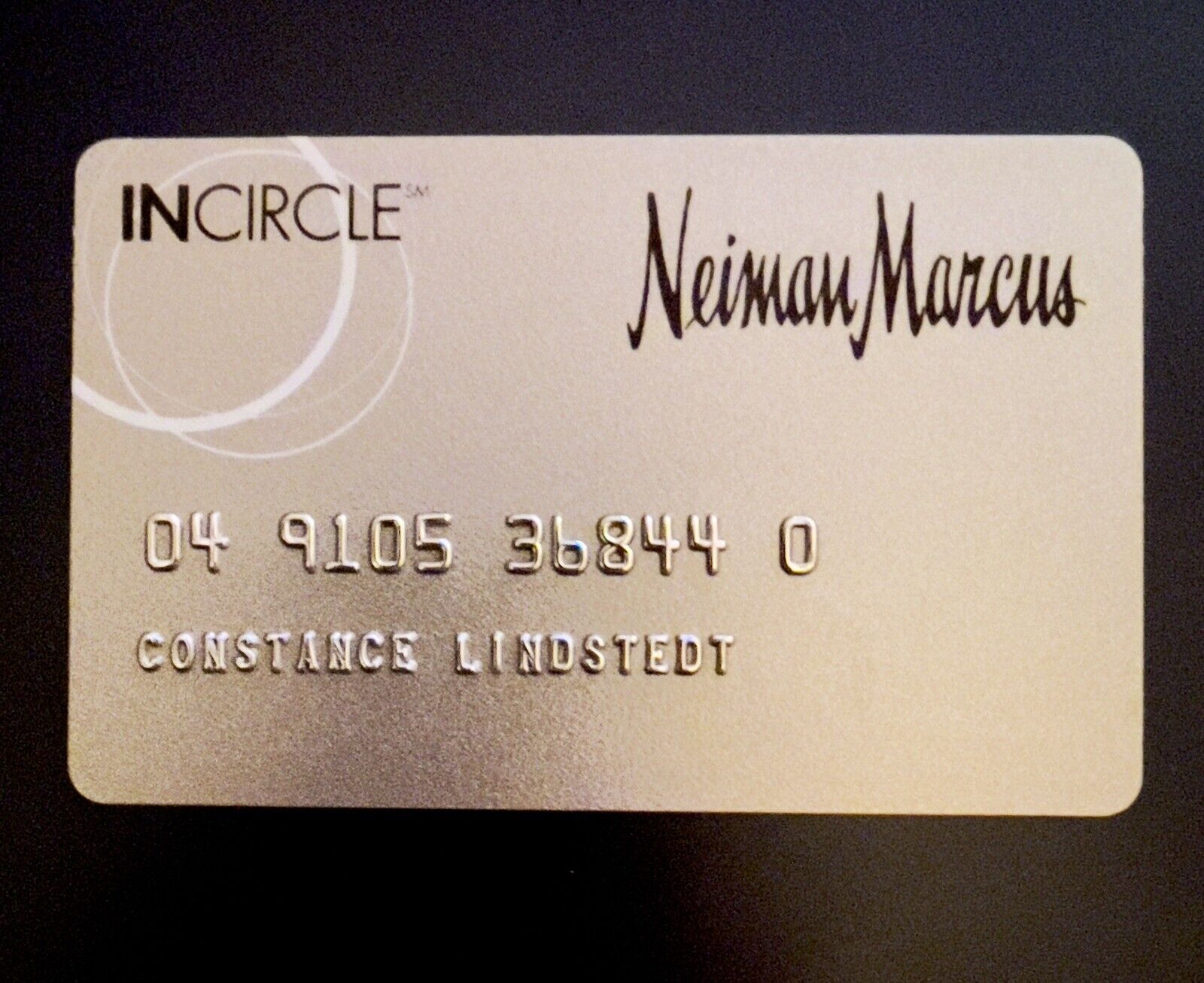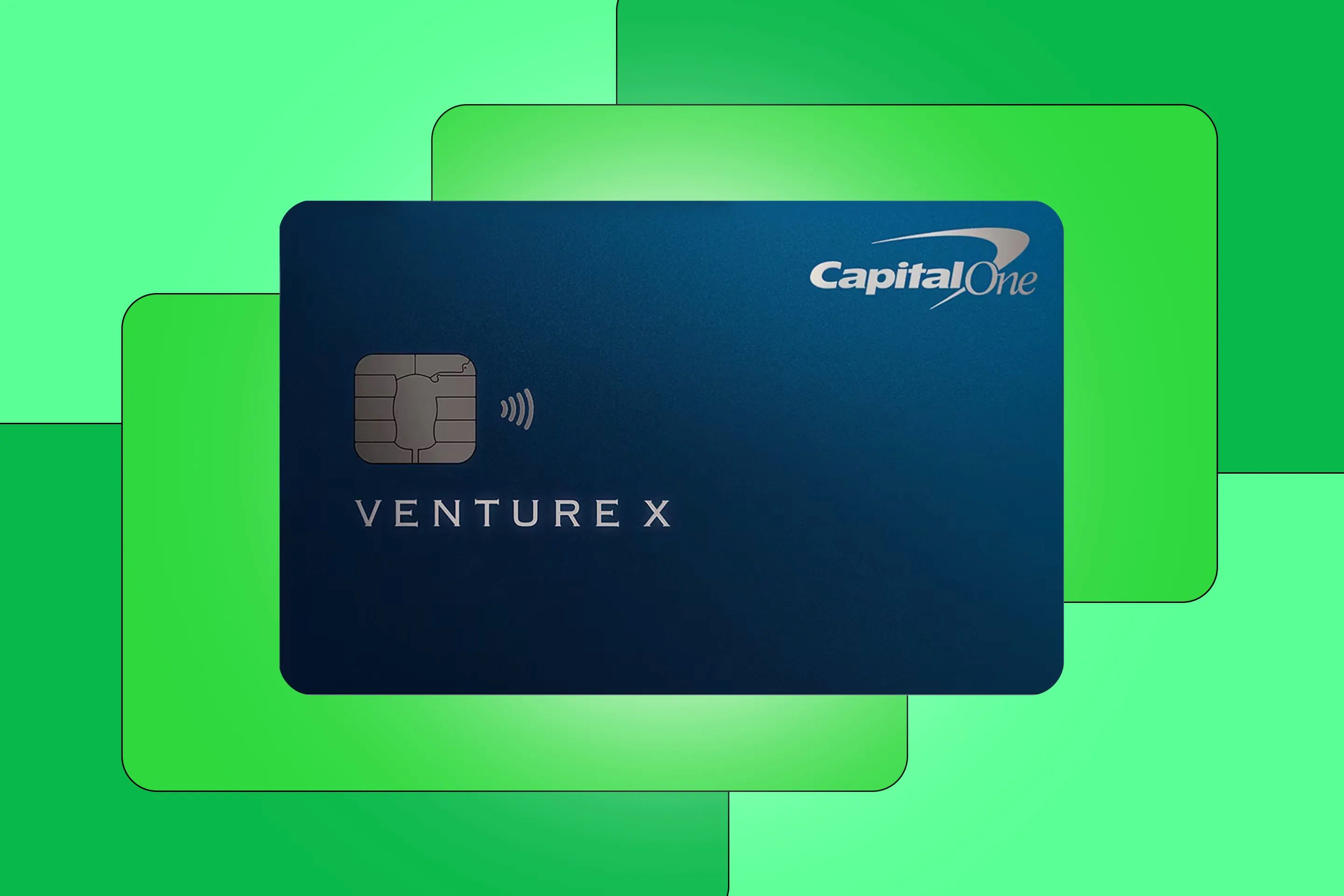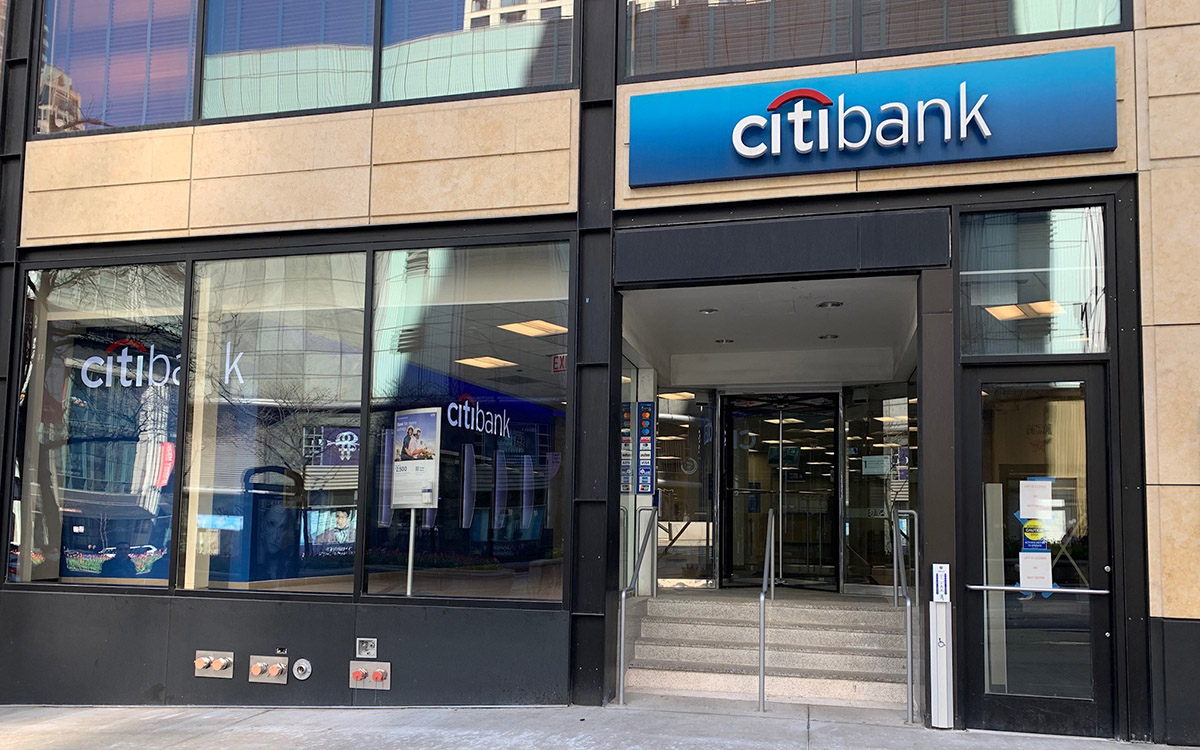Home>Finance>How To Get Approved For Capital One Credit Card


Finance
How To Get Approved For Capital One Credit Card
Published: October 24, 2023
Looking to get approved for a Capital One credit card? Learn how to improve your finances and increase your chances of approval with our expert tips and guidance.
(Many of the links in this article redirect to a specific reviewed product. Your purchase of these products through affiliate links helps to generate commission for LiveWell, at no extra cost. Learn more)
Table of Contents
- Introduction
- What is Capital One Credit Card?
- Why Choose Capital One Credit Card?
- Factors to Consider Before Applying
- How to Check Your Eligibility
- Steps to Get Approved for a Capital One Credit Card
- Building Your Credit Score
- Tips for a Successful Application
- Common Reasons for Rejection
- Next Steps After Approval
- Conclusion
Introduction
Welcome to our guide on how to get approved for a Capital One credit card! If you’re in the market for a new credit card that offers great benefits, competitive rates, and excellent customer service, then you’ve come to the right place. Capital One is a leading financial institution that provides a wide range of credit cards to cater to different needs and lifestyles.
Capital One credit cards are known for their flexible rewards programs, low or no annual fees, and attractive bonus offers. Whether you’re looking for cash back rewards, travel perks, or a card to help you build your credit history, Capital One has options for you.
But before you submit your application, it’s important to understand the factors that lenders consider when evaluating credit card applicants. By arming yourself with this knowledge, you can increase your chances of getting approved and avoid unnecessary rejections that could impact your credit score.
In this guide, we will walk you through the steps to improve your chances of getting approved for a Capital One credit card. We’ll cover the factors to consider before applying, how to check your eligibility, and the necessary steps to take to boost your chances of approval. We’ll also provide some helpful tips and insights to help you navigate the application process with ease.
Remember, getting approved for a credit card is not just about having a good credit score, although it certainly helps. It’s a combination of various factors that lenders assess to determine your creditworthiness. So, let’s dive in and learn how you can increase your chances of being approved for a Capital One credit card!
What is Capital One Credit Card?
Capital One is a reputable financial institution that offers a wide range of credit cards to consumers. With a Capital One credit card, you can enjoy various benefits such as cash back rewards, travel rewards, low-interest rates, and more. Capital One has a diverse selection of credit cards, making it easier for you to find one that suits your specific needs and preferences.
One of the key features of Capital One credit cards is their flexible rewards programs. Depending on the card you choose, you can earn cash back on your purchases, accumulate travel points, or enjoy other exclusive perks. The rewards earned can be redeemed for various options such as statement credits, travel bookings, gift cards, or even transferred to partner loyalty programs.
In addition to attractive rewards, Capital One also offers competitive interest rates and fees. Many of their cards have no annual fees, making them an affordable option for cardholders. The interest rates on Capital One credit cards are also competitive, giving you the opportunity to save money on interest charges if you carry a balance from month to month.
Furthermore, Capital One is known for its excellent customer service. With their 24/7 customer support, you can easily get assistance, whether you have questions about your account, need help with a transaction, or want to report a lost or stolen card. Capital One’s dedication to providing exceptional service ensures that you have a smooth and hassle-free credit card experience.
Capital One credit cards are widely accepted, allowing you to make purchases wherever credit cards are accepted, both nationally and internationally. Whether you’re shopping online, dining out, or traveling abroad, you can rely on your Capital One credit card to make secure and convenient transactions.
Overall, Capital One credit cards offer a combination of great rewards, competitive rates, and reliable customer service. By choosing a Capital One credit card, you can enjoy the benefits of credit card ownership while managing your finances effectively.
Why Choose Capital One Credit Card?
There are several compelling reasons why you should consider choosing a Capital One credit card. Here are some key benefits and advantages that make Capital One an attractive option:
- Flexible Rewards Programs: Capital One offers a variety of rewards programs to cater to different lifestyles and preferences. Whether you prefer cash back, travel rewards, or a combination of both, you can find a Capital One credit card that suits your needs. The flexibility in redemption options allows you to maximize the value of your rewards.
- No Annual Fees: Many Capital One credit cards come with no annual fees, making them cost-effective options for cardholders. This means you can enjoy the benefits and perks of a credit card without having to pay an annual fee, saving you money in the long run.
- Low-Interest Rates: Capital One offers competitive interest rates on their credit cards. If you carry a balance from month to month, you can save money on interest charges compared to higher-rate cards. This can help you manage your finances more effectively and minimize interest expenses.
- Introductory Offers: Capital One often provides attractive introductory offers for new cardholders. These offers may include bonus rewards, cash back, or zero percent introductory APRs for a specified period. Taking advantage of these offers can provide significant financial benefits when you first start using your Capital One credit card.
- Access to Credit-Building Tools: If you’re looking to build or rebuild your credit history, Capital One offers credit-building tools to help you on your journey. Capital One’s Secured Mastercard is designed specifically for individuals who are new to credit or need to rebuild their credit scores. By using this card responsibly, you can establish or improve your creditworthiness over time.
- Outstanding Customer Service: Capital One is well-regarded for its top-notch customer service. Whether you have questions about your account, need assistance with a transaction, or want to report a lost or stolen card, their customer support team is available 24/7 to provide assistance and resolve any issues you may encounter.
With these advantages, it’s clear why Capital One credit cards are a popular choice among consumers. Whether you’re looking for rewards, low fees, competitive rates, or excellent customer service, Capital One offers a credit card that can meet your needs and enhance your financial journey.
Factors to Consider Before Applying
Before applying for a Capital One credit card, there are several important factors you should consider. Taking these factors into account will help you make an informed decision and increase your chances of approval. Here are some key considerations:
- Credit Score: Your credit score is one of the most critical factors that lenders consider when reviewing credit card applications. Capital One offers cards for individuals with various credit scores, but it’s essential to know where you stand. If you have a good credit score, you may be eligible for cards with more attractive rewards and benefits. If your credit score is lower, you may want to consider credit-building options to improve your chances of approval.
- Income and Debt: Lenders typically assess your income level and existing debt when evaluating credit card applications. Capital One may ask for information about your annual income and monthly housing payments. It’s essential to have a steady income and manageable debt-to-income ratio to demonstrate your ability to handle credit card payments responsibly.
- Financial Goals: Before applying for a credit card, it’s crucial to identify your financial goals and how a Capital One credit card can help you achieve them. Do you want to earn rewards, build credit, consolidate debt, or have a backup for emergencies? Understanding your goals will help you select the right credit card that aligns with your needs.
- Card Features and Benefits: Capital One offers various credit cards with different features and benefits. Consider your spending habits and lifestyle to determine what card features are most valuable to you. For example, if you frequently travel, a card with travel rewards and airline partnerships may be beneficial. If you want simplicity, a cash back credit card might be more suitable.
- Annual Fees and Interest Rates: While many Capital One credit cards have no annual fees, some premium cards may come with an annual fee in exchange for enhanced benefits. It’s important to evaluate whether the rewards and perks outweigh the cost of the annual fee. Additionally, it’s crucial to understand the interest rates associated with the card, especially if you anticipate carrying a balance.
- Additional Cardholder Benefits: Capital One credit cards may offer additional perks such as purchase protection, extended warranty coverage, roadside assistance, and travel benefits. Consider these extra benefits and assess their value based on your needs and preferences.
- Terms and Conditions: Before applying for any credit card, carefully review the terms and conditions. Understand the fees, interest rates, payment terms, and any applicable penalties. Be aware of any limitations or restrictions that may impact how you can earn and redeem rewards.
By considering these factors, you can ensure that you choose a Capital One credit card that aligns with your financial goals, lifestyle, and credit profile. This thoughtful evaluation will increase your chances of approval and enable you to make the most of your credit card experience.
How to Check Your Eligibility
Before applying for a Capital One credit card, it’s a good idea to check your eligibility to avoid unnecessary rejections that could negatively impact your credit score. Here are some steps to help you determine if you meet the basic eligibility requirements:
- Review the Credit Card Requirements: Start by visiting the Capital One website and reviewing the specific requirements for the credit card you’re interested in. Pay attention to factors such as minimum credit score, income requirements, and any specific eligibility criteria.
- Check Your Credit Score: Knowing your credit score is crucial before applying for any credit card. You can obtain a free copy of your credit report from each of the three major credit bureaus (Equifax, Experian, and TransUnion) once a year at AnnualCreditReport.com. Check for any errors or discrepancies and take steps to address them.
- Use Capital One’s Pre-Qualification Tool: Capital One offers a pre-qualification tool on their website. You can provide some basic information, such as your name, address, and social security number, and Capital One will perform a soft inquiry to determine which credit cards you may be eligible for. This tool gives you an indication of your likelihood of approval without impacting your credit score.
- Consider Credit-Building Options: If your credit score is less than ideal, Capital One offers credit-building options such as their Secured Mastercard. This card requires a refundable security deposit and is designed to help individuals establish or improve their credit history. It may be a good option if you’re looking to build credit or repair your credit score.
- Consult a Credit Counselor: If you have concerns about your creditworthiness or want personalized advice, consider speaking with a credit counselor. They can evaluate your financial situation, offer guidance on improving your credit, and provide insights on which Capital One credit cards may be most suitable for you.
- Avoid Multiple Applications: Submitting multiple credit card applications within a short period can negatively impact your credit score. If you’re unsure of your eligibility or want to compare different offers, limit your applications to those you think you have a strong chance of approval.
By following these steps, you can assess your eligibility for a Capital One credit card and make an informed decision before submitting your application. Remember to maintain good credit habits, such as making payments on time, keeping your credit utilization low, and monitoring your credit report regularly, to improve your chances of approval and long-term financial success.
Steps to Get Approved for a Capital One Credit Card
If you’re ready to apply for a Capital One credit card, here are the steps you can take to improve your chances of getting approved:
- Research the Card: Before applying, thoroughly research the Capital One credit card you’re interested in. Understand its features, rewards program, fees, and eligibility requirements. This will ensure that you’re applying for a card that aligns with your needs and has a higher chance of approval.
- Gather Required Information: Be prepared with the necessary information and documents when filling out the application. This typically includes personal details (name, address, social security number), employment information, and income details. Having this information on hand will make the application process smoother and faster.
- Review Your Credit Report: Take a final look at your credit report before applying to ensure its accuracy. Address any errors or discrepancies that might affect your creditworthiness. Having a clean and accurate credit report will increase your chances of approval.
- Check Your Credit Score: Knowing your credit score will give you an idea of where you stand in terms of creditworthiness. Capital One considers credit scores when reviewing applications, and a higher score generally improves your chances of approval for cards with better rewards and benefits.
- Apply Online or by Phone: Capital One offers online and phone applications for their credit cards. Choose the method that is most convenient for you and follow the instructions provided. Ensure that all the information you provide is accurate and complete.
- Submit Your Application: After completing the application, carefully review it for any errors or omissions. Double-check your contact information and ensure that you have included all supporting documentation if required. Once you’re confident that everything is correct, submit your application to Capital One for review.
- Wait for a Decision: After submitting your application, be patient and wait for a decision from Capital One. The approval process can take a few days to a few weeks, depending on various factors. Capital One will notify you of their decision by mail or email.
- Activate Your Card: If your application is approved, you will receive your Capital One credit card in the mail. Follow the activation instructions provided and ensure that you sign the back of the card. You can now start using your card responsibly to build credit, earn rewards, and enjoy the benefits it offers.
Remember, getting approved for a Capital One credit card requires a combination of factors, including a good credit score, stable income, and meeting the specific requirements of the card you’re applying for. By following these steps and taking the necessary precautions, you can increase your chances of getting approved for the Capital One credit card that best suits your needs.
Building Your Credit Score
Building and maintaining a good credit score is crucial for obtaining favorable credit card offers, including those from Capital One. Here are some steps you can take to build and improve your credit score:
- Make Payments on Time: Paying your bills on time is one of the most important factors in building a strong credit score. Late payments can negatively impact your credit score and make it more challenging to get approved for credit cards. Set up automatic payments or reminders to ensure you never miss a payment.
- Keep Credit Utilization Low: Your credit utilization ratio refers to the amount of credit you’re using compared to your total credit limit. It’s advisable to keep this ratio below 30%. By keeping your credit card balances low, you demonstrate responsible credit usage and improve your creditworthiness.
- Monitor Your Credit Report: Regularly check your credit report for any errors or inaccuracies. Dispute any incorrect information and keep track of any changes in your credit history. Monitoring your credit report allows you to address issues promptly and maintain a healthy credit score.
- Build a Credit History: If you’re new to credit or have a limited credit history, consider starting with a secured credit card like the Capital One Secured Mastercard. By making timely payments and managing your credit responsibly, you can establish a positive credit history and improve your credit score over time.
- Keep Old Accounts Open: Closing old credit accounts may seem like a logical step, but it can negatively impact your credit score. Keeping your oldest accounts open shows a longer credit history and can improve your creditworthiness. However, keep in mind that it’s essential to use those accounts responsibly and avoid accumulating unnecessary debt.
- Diversify Your Credit: Having a mix of different types of credit can contribute positively to your credit score. This includes a combination of credit cards, loans, and other types of credit. However, it’s essential to only take on credit that you can manage responsibly.
- Avoid Excessive Credit Applications: Applying for multiple credit cards or loans within a short period can negatively impact your credit score. Each application results in a hard inquiry on your credit report, which can lower your score temporarily. Limit your applications to those that you genuinely need and feel confident about getting approved for.
- Manage Your Debt Responsibly: If you have existing debts, work on paying them down and managing them responsibly. Make consistent payments, prioritize high-interest debts, and avoid taking on new debt unless necessary. Responsible debt management shows lenders that you can handle credit responsibly.
Building your credit score takes time and patience. By implementing these strategies and maintaining healthy credit habits, you can improve your creditworthiness and increase your chances of getting approved for future credit card applications, including those from Capital One.
Tips for a Successful Application
When applying for a Capital One credit card, there are certain tips you can follow to increase your chances of a successful application. These tips can help you navigate the application process and improve your overall creditworthiness. Here are some helpful suggestions:
- Know Your Credit Score: Before applying, check your credit score to understand where you stand. This information can help you choose the right credit card and manage your expectations regarding approval odds and potential interest rates.
- Apply for the Right Card: Choose the Capital One credit card that aligns with your needs, lifestyle, and credit profile. Consider factors such as rewards, annual fees, and interest rates. Applying for a card that matches your creditworthiness increases the likelihood of approval.
- Submit a Complete and Accurate Application: Fill out the application form carefully, ensuring that all the information provided is accurate and up to date. Inaccurate information could lead to delays or denial of your application. Double-check your contact details and employment information to avoid any errors.
- Show Stable Income: Lenders want to see that you have a stable income to make timely credit card payments. Include accurate information about your employment status, salary, and other sources of income in your application. A higher income level can also contribute to higher credit limits.
- Keep Debt Levels in Check: Ideally, keep your overall debt-to-income ratio low. Lenders assess your ability to handle additional debt based on your current obligations. Pay down existing debt, such as outstanding credit card balances or loans, to demonstrate responsible debt management.
- Provide Supplementary Documentation if Required: Some credit card applications may require additional documentation, such as proof of income or address. Be prepared to submit these documents promptly if requested. Failure to provide the required documentation may result in delays or denial of your application.
- Follow Up on Your Application: If you haven’t received a decision within a reasonable timeframe, consider following up with Capital One to inquire about the status of your application. They can provide updates or address any concerns or issues that may have arisen during the review process.
- Continue to Monitor Your Credit: Even after submitting your application, it’s essential to stay vigilant about managing your credit. Make payments on time, keep credit utilization low, and regularly monitor your credit report for any changes or discrepancies. Maintaining good credit habits will benefit you in the long run.
By following these tips, you can enhance your chances of a successful Capital One credit card application. Remember to present yourself as a responsible and creditworthy individual, demonstrating your ability to manage credit responsibly and make payments on time. Taking these proactive steps can increase your likelihood of approval and set you on the path to enjoying the benefits of a Capital One credit card.
Common Reasons for Rejection
Understanding the common reasons for credit card application rejections can help you avoid unnecessary denials and improve your chances of approval. Here are some common factors that may contribute to a credit card application being rejected by Capital One:
- Poor Credit History or Low Credit Score: One of the primary reasons for rejection is a poor credit history or a low credit score. Lenders, including Capital One, rely on credit scores to assess an applicant’s creditworthiness. If your credit score is low, it indicates a higher risk to the lender, making approval less likely.
- High Debt-to-Income Ratio: Capital One considers your debt-to-income ratio when evaluating credit card applications. If your existing debt levels are high compared to your income, it could raise concerns about your ability to manage additional credit. Lenders want to ensure that you can make timely payments without being overwhelmed by debt.
- Insufficient Income: If your income is too low, it may not meet the minimum requirements for the credit card you’re applying for. Lenders need assurance that you have the means to repay your credit card balances, so a higher income level improves your chances of approval.
- Limited Credit History: If you have a limited or thin credit history, it can be challenging to get approved for certain credit cards. Lenders rely on a track record of responsible credit management to assess an applicant’s creditworthiness. Building credit history through responsible credit card use or other credit-building strategies can help overcome this hurdle.
- Recent Bankruptcy or Delinquent Accounts: Recent bankruptcies or accounts with a history of delinquency may negatively impact your creditworthiness in the eyes of lenders. Bankruptcy and delinquencies raise concerns about your ability to manage credit responsibly, which can result in a rejection of your credit card application.
- Multiple Recent Credit Applications: Applying for multiple credit cards within a short period can raise red flags to lenders. Each application generates a hard inquiry on your credit report, indicating that you are seeking credit from multiple sources. Lenders may view this as a sign of financial strain or possible overspending, making them cautious about extending additional credit.
- Errors or Inaccuracies in the Application: Mistakes or inaccuracies in the application, such as providing incorrect personal information or omitting required details, can lead to automatic rejections. It’s crucial to double-check your application before submitting to ensure that all information is accurate and complete.
- Past Negative Relationship with Capital One: If you have had a previous negative relationship with Capital One, such as a history of defaulting on a prior account, it may impact your chances of being approved for a new credit card. Lenders consider your past behavior as an indication of how you may handle future credit obligations.
While these factors can contribute to a rejection, it’s important to remember that each credit card application is evaluated on a case-by-case basis. If your application is denied, review the reasons provided by Capital One and take steps to address any deficiencies. This may involve improving your credit score, paying down debt, or resolving inaccuracies on your credit report. Building a positive credit history and maintaining good credit habits over time can increase your likelihood of approval for future credit card applications.
Next Steps After Approval
Congratulations on getting approved for a Capital One credit card! After receiving the good news, there are a few important next steps to take to ensure you make the most out of your new credit card:
- Activate Your Card: Upon receiving your Capital One credit card, you will need to activate it. This can usually be done by following the instructions provided with the card, which may include calling a toll-free number or activating it online via the Capital One website. Activation is a simple process that ensures your card is ready for use.
- Create an Online Account: Set up an online account with Capital One. This will give you access to manage your credit card online, view statements, make payments, and track your rewards. Having an online account is convenient and allows you to stay on top of your credit card activity.
- Review the Terms and Conditions: Take the time to carefully read and understand the terms and conditions of your new credit card. Familiarize yourself with important details such as interest rates, fees, rewards program rules, and any promotional offers. Knowing the terms and conditions will help you make informed decisions about how to use your credit card.
- Create a Budget: Before using your new credit card, create a budget to ensure responsible spending and repayment. Set limits on how much you will charge to your card each month and make a plan for paying off the balance in full and on time. This will help you avoid unnecessary debt and interest charges.
- Manage Your Credit Utilization: Strive to keep your credit utilization ratio below 30%. This means using only a portion of your available credit to maintain a healthy balance between your usage and credit limit. Monitoring your credit utilization helps maintain a positive credit score and demonstrates responsible credit usage.
- Set Up Automatic Payments: Consider setting up automatic payments for at least the minimum payment due each month. This ensures that you never miss a payment and helps you maintain a good payment history. However, it’s important to review your statements regularly to ensure accuracy and to make additional payments if feasible.
- Use Your Card Responsibly: Make informed purchasing decisions and use your credit card responsibly. Avoid excessive spending and only charge what you can afford to repay. Keep track of your expenses and regularly review your statements to identify any unauthorized transactions or errors.
- Maximize Rewards: If your Capital One credit card offers rewards, take advantage of them. Understand the rewards program and how to earn and redeem rewards. Consider aligning your spending with bonus categories or promotions to maximize your reward earnings.
- Maintain Good Credit Habits: Building and maintaining good credit is an ongoing process. Continue to practice good credit habits such as making payments on time, regularly reviewing your credit report, and keeping your credit utilization low. These habits will help you establish and maintain a positive credit history.
- Monitor Your Account: Regularly monitor your credit card account for any suspicious activity or unauthorized transactions. Report any discrepancies or concerns to Capital One immediately to protect yourself from fraud.
Following these next steps after approval will set you on the path to responsible credit card ownership and maximizing the benefits of your Capital One credit card. Enjoy the perks, rewards, and convenience of your new card while maintaining a healthy financial outlook.
Conclusion
Obtaining a Capital One credit card can provide you with a range of benefits, including rewards, competitive rates, and excellent customer service. However, getting approved for a credit card requires careful consideration and preparation.
In this guide, we’ve covered the essential factors to consider before applying for a Capital One credit card, such as your credit score, income, and financial goals. We’ve also provided tips to help you check your eligibility and increase your chances of approval. By understanding the common reasons for rejection, you can take proactive steps to address any potential issues that may hinder your application.
Once you are approved for a Capital One credit card, it’s crucial to activate your card and familiarize yourself with the terms and conditions. Creating a budget, managing your credit utilization, and setting up automatic payments can help you use your credit card responsibly and avoid unnecessary debt.
Remember to make the most of the rewards and benefits offered by your Capital One credit card while maintaining good credit habits. Regularly monitor your account, review your statements, and stay on top of your credit score to protect yourself from fraud and maintain a positive credit history.
By following the steps outlined in this guide and staying mindful of your credit responsibilities, you can enjoy the advantages of a Capital One credit card and work towards achieving your financial goals.
Now that you’re equipped with the knowledge and strategies for a successful Capital One credit card application, it’s time to take action and embark on your credit card journey. Good luck and enjoy the benefits that come with responsible credit card ownership!














